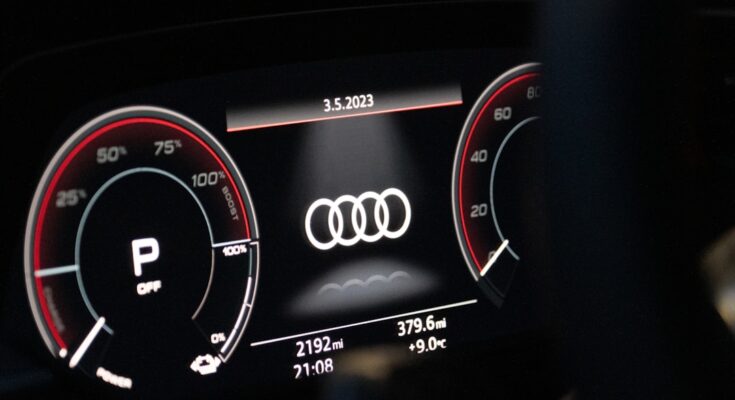Hybrid cars have gained popularity in recent years as a more fuel-efficient and environmentally friendly alternative to traditional gasoline-powered vehicles. These innovative vehicles combine an internal combustion engine with an electric motor, allowing them to achieve significantly higher fuel efficiency and lower emissions compared to their non-hybrid counterparts. The use of regenerative braking and advanced battery technology further enhances the efficiency of hybrid cars, making them an attractive option for eco-conscious consumers.
Additionally, the growing availability of charging infrastructure and government incentives for hybrid vehicles have contributed to their increasing adoption in the automotive market. Hybrid cars come in various types, including full hybrids, mild hybrids, and plug-in hybrids, each offering different levels of electric propulsion and fuel efficiency. Full hybrids, such as the Toyota Prius, can operate solely on electric power at low speeds and use the internal combustion engine at higher speeds, while plug-in hybrids, like the Chevrolet Volt, can be charged from an external power source and run on electric power for extended distances.
With advancements in hybrid technology and the development of more efficient powertrains, the latest hybrid cars offer improved performance, range, and overall driving experience. As the automotive industry continues to prioritize sustainability and energy efficiency, hybrid cars are expected to play a significant role in shaping the future of transportation.
Key Takeaways
- Hybrid cars combine a traditional gasoline engine with an electric motor to improve fuel efficiency and reduce emissions.
- Criteria for fuel efficiency in hybrid cars include the type of hybrid system, battery capacity, and overall driving range.
- The top fuel-efficient hybrid cars of 2024 include models from Toyota, Honda, and Hyundai, with impressive fuel economy ratings.
- Each car comes with unique features and specifications, such as advanced safety technology, spacious interiors, and user-friendly infotainment systems.
- When comparing fuel efficiency and performance, it’s important to consider factors like acceleration, handling, and overall driving experience, in addition to miles per gallon.
Criteria for Fuel Efficiency
Powertrain Efficiency
The vehicle’s powertrain, which includes the combination of the internal combustion engine and electric motor, directly impacts the overall fuel consumption and emissions of the vehicle.
Aerodynamics and Weight
The aerodynamics and weight of the car play a crucial role in determining its fuel efficiency. Streamlined designs and lightweight materials help reduce drag and energy consumption, leading to improved mileage per gallon.
Battery Technology and Energy Recovery
Advanced lithium-ion batteries have become the standard for modern hybrids, offering higher energy density and longer lifespan compared to older nickel-metal hydride batteries. The capacity and efficiency of these batteries directly influence the electric range and overall fuel economy of the vehicle. Furthermore, the integration of regenerative braking systems allows hybrid cars to recover energy during deceleration and braking, further enhancing their efficiency.
Overall, a combination of advanced powertrain technology, aerodynamics, lightweight materials, and energy storage systems contributes to the fuel efficiency of hybrid cars.
Top Fuel-Efficient Hybrid Cars of 2024

In 2024, several hybrid cars have stood out for their exceptional fuel efficiency and eco-friendly performance. The Toyota Prius continues to be a top contender in this category, offering an impressive EPA-estimated 58 mpg combined. Its aerodynamic design, efficient powertrain, and advanced battery technology contribute to its outstanding fuel economy.
Another notable hybrid is the Honda Insight, which achieves an EPA-estimated 55 mpg combined. With its sleek exterior and sophisticated hybrid system, the Insight delivers a smooth and efficient driving experience. The Hyundai Ioniq Hybrid is also a strong competitor in the fuel-efficient hybrid segment, boasting an EPA-estimated 58 mpg combined.
Its innovative powertrain and lightweight construction make it a compelling choice for environmentally conscious drivers. Additionally, the Ford Fusion Hybrid has made significant strides in fuel efficiency, achieving an EPA-estimated 43 mpg combined. With its spacious interior and advanced hybrid technology, the Fusion Hybrid offers a balance of performance and eco-friendliness.
These top fuel-efficient hybrid cars of 2024 demonstrate the advancements in hybrid technology and the commitment of automakers to deliver sustainable transportation solutions.
Features and Specifications of Each Car
| Car Model | Engine Type | Horsepower | Torque | Transmission |
|---|---|---|---|---|
| Toyota Camry | Inline-4 | 203 hp | 184 lb-ft | 8-speed automatic |
| Honda Civic | Inline-4 | 158 hp | 138 lb-ft | CVT |
| Ford Mustang | V8 | 460 hp | 420 lb-ft | 6-speed manual |
The Toyota Prius features a 1.8-liter four-cylinder engine paired with an electric motor, delivering a combined system output of 121 horsepower. Its continuously variable transmission (CVT) ensures smooth acceleration and efficient power delivery. The Prius comes equipped with a suite of advanced safety features, including pre-collision braking and lane departure alert, as well as a spacious interior with modern amenities such as a touchscreen infotainment system and smartphone integration.
The Honda Insight incorporates a 1.5-liter Atkinson-cycle engine with an electric motor, producing a combined output of 151 horsepower. Its refined suspension and responsive handling make it a joy to drive, while its upscale interior offers comfort and convenience. The Insight also comes with Honda Sensing, a comprehensive suite of driver-assistive technologies, along with a user-friendly infotainment system and connectivity options.
The Hyundai Ioniq Hybrid utilizes a 1.6-liter engine combined with an electric motor to deliver a total output of 139 horsepower. Its dual-clutch transmission provides engaging performance and efficiency, while its regenerative braking system maximizes energy recovery. The Ioniq Hybrid features a well-appointed interior with intuitive controls and ample cargo space, along with advanced infotainment and connectivity features.
The Ford Fusion Hybrid is powered by a 2.0-liter Atkinson-cycle engine paired with an electric motor, generating a combined output of 188 horsepower. Its smooth and quiet ride is complemented by a range of driver-assist technologies such as adaptive cruise control and automatic emergency braking. The Fusion Hybrid offers a spacious cabin with high-quality materials and modern infotainment options for enhanced comfort and entertainment.
Comparison of Fuel Efficiency and Performance
When comparing the fuel efficiency and performance of these top hybrid cars, it’s evident that each model offers a unique balance of eco-friendliness and driving dynamics. The Toyota Prius stands out for its exceptional fuel economy, achieving an EPA-estimated 58 mpg combined while delivering adequate power for daily driving. Its smooth acceleration and responsive handling make it a practical choice for eco-conscious consumers seeking reliable transportation.
The Honda Insight excels in both fuel efficiency and performance, with an EPA-estimated 55 mpg combined and a spirited driving experience. Its agile handling and strong acceleration set it apart in the hybrid segment, appealing to drivers who prioritize both efficiency and engaging driving dynamics. The Hyundai Ioniq Hybrid impresses with its remarkable fuel economy of 58 mpg combined while offering a comfortable ride and composed handling.
Its efficient powertrain and regenerative braking contribute to its eco-friendly performance without compromising on driving pleasure. The Ford Fusion Hybrid delivers respectable fuel efficiency at an EPA-estimated 43 mpg combined while providing ample power for highway merging and passing maneuvers. Its refined ride quality and composed handling make it a compelling choice for those seeking a well-rounded hybrid sedan with a focus on both efficiency and performance.
Cost and Maintenance Considerations

Competitive Pricing and Reliability
In addition to fuel efficiency and performance, cost and maintenance considerations are important factors for prospective hybrid car buyers. The Toyota Prius offers competitive pricing for its segment, along with excellent reliability and low long-term maintenance costs. Its renowned hybrid technology ensures durability and efficiency, contributing to its overall value proposition.
Affordability and Quality
The Honda Insight presents an attractive balance of affordability and quality, with competitive pricing and low ownership costs. Its efficient powertrain and reputation for reliability make it a cost-effective choice for those looking to minimize ongoing expenses.
Exceptional Value and Warranty Coverage
The Hyundai Ioniq Hybrid stands out for its exceptional value, offering an affordable price point along with impressive fuel economy and minimal maintenance requirements. Its industry-leading warranty coverage further enhances its appeal as a cost-effective hybrid option.
Affordability and Performance
The Ford Fusion Hybrid provides a compelling blend of performance and efficiency at a reasonable price, making it an attractive choice for budget-conscious buyers. Its solid build quality and dependable hybrid technology contribute to its overall affordability over time.
Conclusion and Future Trends in Hybrid Car Technology
In conclusion, the top fuel-efficient hybrid cars of 2024 offer impressive advancements in eco-friendly performance, driving dynamics, and overall value. With their exceptional fuel economy, innovative features, and competitive pricing, these hybrid models represent the forefront of sustainable transportation solutions in the automotive market. Looking ahead, future trends in hybrid car technology are expected to focus on further improving fuel efficiency, expanding electric range, enhancing battery technology, and integrating advanced driver-assist systems for increased safety and convenience.
As automakers continue to invest in research and development of hybrid powertrains, we can anticipate even more efficient and capable hybrid vehicles in the years to come. Overall, the evolution of hybrid car technology reflects a commitment to reducing environmental impact while delivering reliable and enjoyable driving experiences for consumers. With ongoing advancements in engineering and design, hybrid cars are poised to play a pivotal role in shaping the future of mobility towards a more sustainable and efficient direction.
If you’re interested in learning more about the latest advancements in hybrid car technology, be sure to check out the article on AlbumCars. They provide in-depth reviews and comparisons of the best hybrid cars for fuel efficiency in 2024, helping you make an informed decision when it comes to choosing a vehicle that is both eco-friendly and cost-effective.
FAQs
What are hybrid cars?
Hybrid cars are vehicles that combine a traditional internal combustion engine with an electric propulsion system. This allows the car to use less fuel and produce lower emissions compared to conventional vehicles.
How do hybrid cars achieve fuel efficiency?
Hybrid cars achieve fuel efficiency through a combination of factors, including regenerative braking, engine shut-off at idle, and the ability to operate solely on electric power at low speeds.
What are the best hybrid cars for fuel efficiency in 2024?
The best hybrid cars for fuel efficiency in 2024 include models such as the Toyota Prius, Honda Insight, Hyundai Ioniq, and the Ford Fusion Hybrid. These models offer a combination of excellent fuel economy, advanced technology, and overall value.
What factors should I consider when choosing a hybrid car for fuel efficiency?
When choosing a hybrid car for fuel efficiency, it’s important to consider factors such as the vehicle’s fuel economy ratings, driving habits, and the availability of charging infrastructure for plug-in hybrid models. Additionally, considering the overall cost of ownership and available tax incentives can also be important.
Are hybrid cars more expensive to maintain?
While hybrid cars may have slightly higher maintenance costs due to the complexity of their dual powertrains, they generally have similar maintenance costs to traditional vehicles. Additionally, hybrid cars often have longer warranties that can help offset potential maintenance costs.



